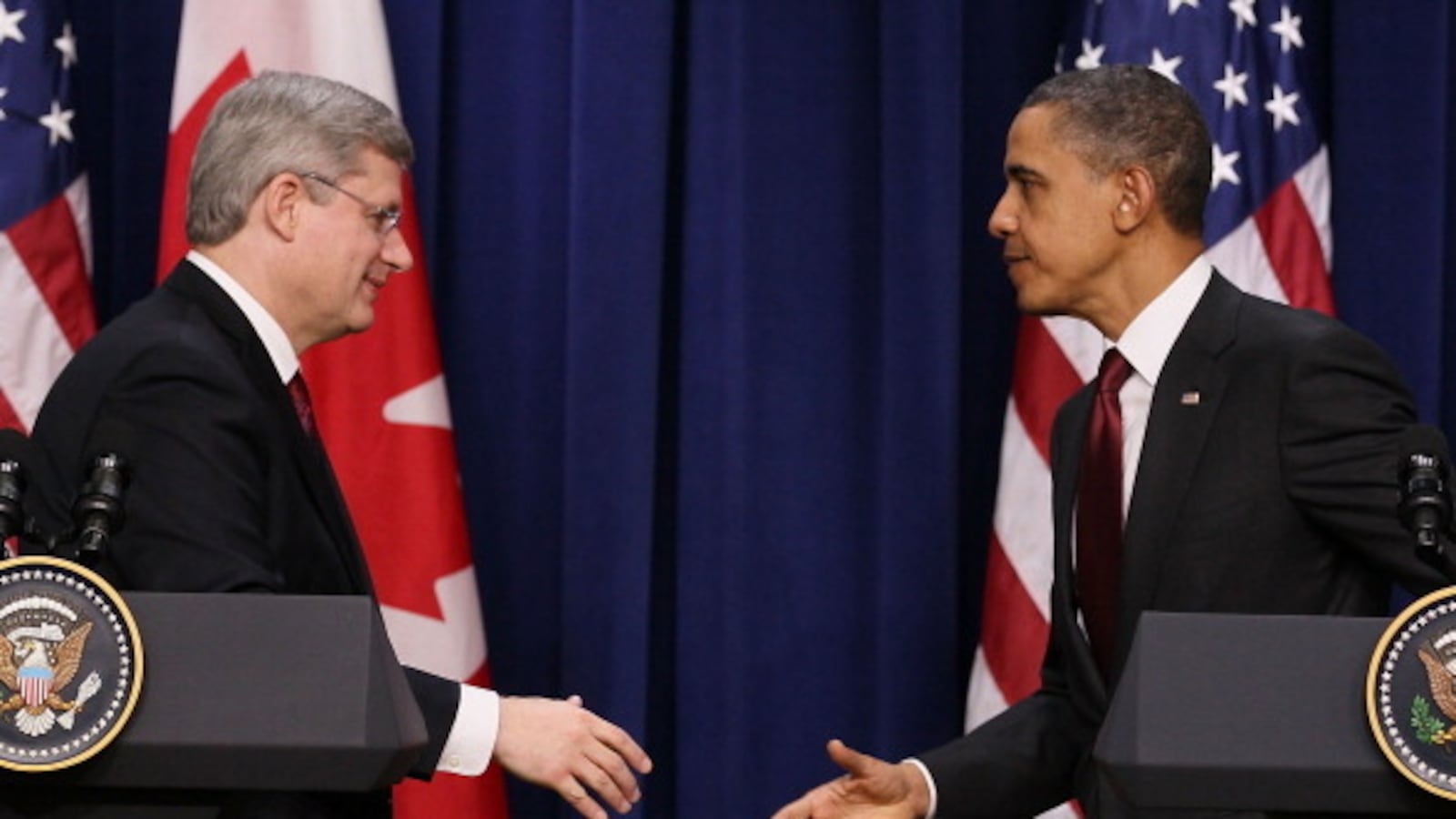
In my column for the National Post, I explain why Canada's outlook on North American energy policy has become more optimistic:
Speaking in New Mexico on Thursday, Mitt Romney announced an energy plan that promised energy independence — not for the United States only — but also for Canada and Mexico.
“I’m going to establish an energy partnership with Canada and Mexico,” he said. “We need to work together with these guys, work collaboratively. And we need a fast-track process to make sure that infrastructure projects are approved. And particularly, we’re going to get that Keystone Pipeline built as one of those first infrastructure projects that take advantage of their resources.”
In the past, American talk of “continental energy strategies” provoked furious reactions in Canada. The prospect of continental energy sharing was a major argument against the U.S.-Canada Free Trade Agreement back in the 1980s. And now the issue is being raised again, and the reaction from Canada is … quiet.
I see two reasons for this change of view among Canadians.
The first is a great sustained rise in national self-confidence. Canada has enjoyed a long run of national success, not only economic, but also social and political. The days when Canadians feared that they must inevitably be outmaneuvered in any negotiation with the Americans, that Canadian businesses would always be outcompeted, that Canadian sovereignty would be subverted by American power-plays — those days have been left behind. Canadians are ceasing to mentally insert the word “junior” whenever they hear an American pronounce the word “partner.”
The second, and maybe more important, reason is that the rising importance of the oil sands has altered the way many Canadians think about resources.





